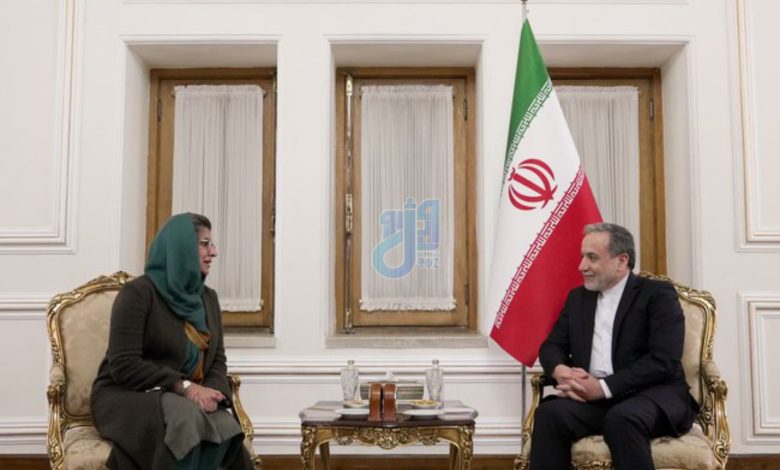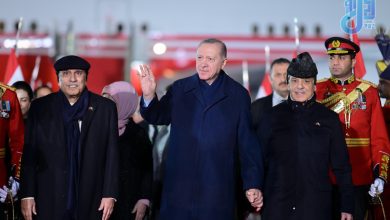Meeting Between Pakistan’s Deputy Foreign Minister and Iran’s Foreign Minister

Weezha Roz-Amina Baloch, Pakistan’s Deputy Foreign Minister, met with Iran’s Foreign Minister, Seyed Abbas Araghchi, in Tehran on Monday.
The meeting took place on the sidelines of the ECO (Economic Cooperation Organization) Deputy Foreign Ministers’ meeting, highlighting the ongoing efforts by both nations to enhance bilateral and regional cooperation.
Key topics discussed included strengthening Iran-Pakistan relations, addressing shared concerns such as border security, drug trafficking, and illegal migration, and coordinating on regional issues, including Afghanistan, Gaza, Syria, and Lebanon.
Both sides emphasized the importance of sustained high-level engagement and mutual cooperation to address common challenges.
Key Analysis Points:
1.Significance of Iran-Pakistan Relations:
The Iranian Foreign Ministry’s statement underscored Pakistan’s special position in Iran’s foreign policy, reflecting the strategic importance of Pakistan as a key neighbor in the region.
As two influential regional powers, Iran and Pakistan share both opportunities and challenges, necessitating closer collaboration to manage issues such as security, trade, and regional stability.
2.Mutual Interests and Shared Concerns:
Both sides emphasized mutual interests and common challenges, including border security, drug trafficking, and illegal migration, which have long been central issues in their bilateral relations.
Pakistan reaffirmed its commitment to deepening ties with Iran and enhancing cooperation at both bilateral and regional levels, signaling Islamabad’s desire to strengthen relations with Tehran amid evolving regional dynamics.
3.Regional Developments:
The meeting addressed critical regional issues, including the situations in Afghanistan, Gaza, Syria, and Lebanon. These discussions reflect the shared concerns of both countries regarding regional crises and their efforts to align foreign policies.
On Afghanistan, in particular, Iran-Pakistan cooperation could play a pivotal role in addressing the country’s security and political challenges, contributing to regional stability.
4.Emphasis on Sustained Engagement:
Foreign Minister Araghchi stressed the importance of continuous high-level interactions and regular consultations at various levels, highlighting the need to strengthen dialogue mechanisms between the two nations.
Pakistan’s commitment to expanding relations with Iran indicates a mutual desire to move beyond past challenges and foster constructive cooperation.
International Analysis:
1.Iran-Pakistan Relations in a Regional Context:
As two regional powers, Iran and Pakistan play a significant role in shaping the security and stability of South Asia and the Middle East.
Their collaboration could help address regional crises, including terrorism, drug trafficking, and the situation in Afghanistan.
However, historical challenges, such as border tensions and political disagreements, have occasionally strained relations.
This meeting could mark a positive step toward reducing tensions and building mutual trust.
2.Role of Regional Organizations like ECO:
The meeting took place alongside the ECO Deputy Foreign Ministers’ meeting, underscoring the potential of regional organizations to serve as platforms for enhancing economic and security cooperation among member states, including Iran and Pakistan.
ECO provides a framework for fostering closer ties and addressing shared challenges through multilateral engagement.
3.Challenges Ahead:
Despite the willingness to strengthen ties, obstacles such as external influences, border disputes, and security concerns could hinder progress.
Domestic developments and shifts in foreign policy priorities in both countries may also impact the trajectory of their bilateral relations.
Conclusion:
The meeting between Pakistan’s Deputy Foreign Minister and Iran’s Foreign Minister reflects the shared commitment of both nations to deepen bilateral ties and collaborate on regional challenges.
While the discussions signal a positive direction, the success of these efforts will depend on the ability of both sides to address historical disagreements and build lasting trust.
In the current regional context, Iran-Pakistan cooperation holds significant potential to contribute to the stability and security of South Asia and the Middle East.
Sustained engagement and a focus on mutual interests will be crucial for advancing this partnership.
Weezha Roz




